Advancing Excellence in School Nursing Award Recipients
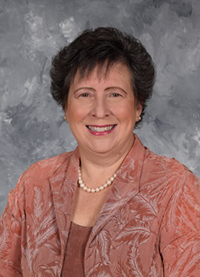
Deanna Hess MSEd, BSN, RN, CSN
Chairman, health services, Mt. Lebanon School District
What encouraged you to want to become a school nurse?
I became a certified school nurse for many reasons - I had always wanted to become a school nurse. I just waited for the time to be right. I really felt I needed a good nursing experience basis to work as independently as school nurses do. I also really felt strongly that my experience in mental health nursing would be helpful in dealing with the multitude of different medical and mental health issues that arise within a school setting.
I love to teach and felt school nursing would allow me to work within both of my loves and passions...nursing and teaching. It is an exciting, ever changing field.
What do you plan to do with your award?
I am very humbled and honored to have received this award. However, this is a team award - each of our nurses played a part in this award - without each one of them - there would not be a department.
I plan to use the award for educational materials/conferences for the nurses and on a “wish list” of items for our nurses in their buildings.
What is the most common misperception about being a school nurse?
I think one of the most common misperceptions about a school nurse is that the majority of people are not aware of the large scope of both nursing - mental health and teaching knowledge that a school nurse must possess. A school nurse does do the basic first aid for not only students, but faculty, staff and any person that comes onto the school property. However, in today’s diverse society, a school nurse needs to be ready and able to handle medical emergencies, which includes injuries, but also potentially mass casualties. The school nurse is a liaison between the school - the community and the medical professionals. She/he is involved in community outreach programs — keeps abreast of community issues – serves on committees within the community. The school nurse is also always teaching - every time that a student enters your office is a teachable moment.
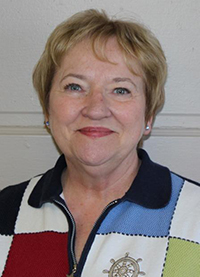
Deborah Kaplan, RN, BSN, CSN
Director of nursing and health services, Raleigh County Schools
What encouraged you to want to become a school nurse?
In 1983 after graduating nursing school I was in orientation at a local hospital. The Staff Development Nurse was telling the class that she was Ieaving the hospital to become the first school nurse in Wyoming County, WV. That was the first time I heard of school nursing but it left a lasting impression. It was always there in the back of my mind as what I wanted to do as a nurse. In 1995 I returned to school to complete my bachelor's degree in nursing. I completed the program in December 1996 and was fortunate to be hired as a school nurse in Raleigh County in October 1997.
What do you plan to do with your award?
I would like to arrange continuing education for our county school nurses in the area of opioid addiction mental health first aid. West Virginia has an increasing population of opioid addicted teens and young adults. The students we see coming into the school system have learning disabilities and behavior problems along with depression and suicide ideation. We need to be educated on the best techniques to assist these students in crisis.
What is the most common misperception about being a school nurse?
Most people think of a school nurse as being there for bumps, bruises and Band-Aids. That is far from the actual work day for a school nurse. We treat student with complex medical and psychological problems daily. Diabetes, asthma, severe allergies, suctioning catherization's, O2 management, head injuries and broken bones are just a few of the medical problems addressed daily while traveling between multiple schools. It Ieaves little time to work with the mental health issues in our schools but we try.
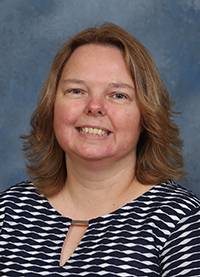
Susie Kerr
Certified school nurse, Community Day School
What encouraged you to want to become a school nurse?
I have always enjoyed the wellness and teaching aspect of nursing and I love pediatrics. Additionally, I like building relationships with the students and their families. The school setting is the perfect nursing discipline to combine all of these areas.
What do you plan to do with your award?
I would like to use a portion of the award for my professional development and donate the remainder to the school to purchase equipment for the health office.
What is the most common misperception about being a school nurse?
Many people believe school nursing is only handing out Band-Aids. In reality, the school nurse role is complex and involves managing the physical and mental health of all the students in our care and applying our skills, experience, and knowledge in the academic setting to allow all students to function to the best of their ability.
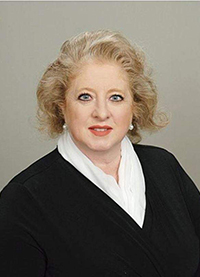
Tama Kolar-Kowalski
Certified school nurse, Intermediate Unit One
What encouraged you to want to become a school nurse?
The drive and ambition to use my educational background and nursing skills to enhance the lives of children and the community. And to establish positive lifelong healthy lifestyle and habits with children. Also to advocate and inspire students with healthy self-care and positive development.
What do you plan to do with your award?
I plan to allocate funds towards technical screening equipment to share with my colleagues and Continued Medical Education and Development and Certifications.
What is the most common misperception about being a school nurse?
In general, the misconception of simplicity, but in fact it is highly diversified, demanding and ever changing with extensive complexity and comprehensive medical case management that encompasses a very diversified medical agenda. Nursing care within the school system has evolved and is ever changing and challenging. The complexity and the multitude of diagnoses and ranges of disorders that are addressed within the realm of school nursing is unlimited.
School nursing is extremely demanding and rewarding. Complex medical cases are addressed daily and involve psychiatric disorders, drugs, poverty, medically fragile, local, state and federal government regulations, intensive medical care and an unlimited spectrum of nursing demands and management. Each case is unique just like the child!
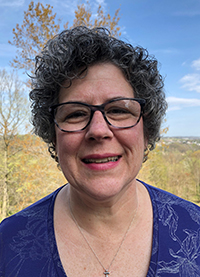
Donna Lafferty
Certified school nurse, Norwin School District
What encouraged you to want to become a school nurse?
I was encouraged to be a school nurse by my parents who were both school teachers. I am grateful to my husband also for supporting this career. Finally, my children have recognized the benefits of having mom close to home and working normal hours while they were growing up.
What do you plan to do with your award?
This award will enable me to make baby towels for the newborns of parenting teens. I will also explore bringing a support dog program to our district.
What is the most common misperception about being a school nurse?
There is a humorous children’s book that portrays misperceptions about being a school nurse. It is called The School Nurse from the Black Lagoon. On a serious note, one of the biggest misperceptions is that hospital nurses feel totally comfortable in school nurse jobs. It really takes time to get used to school nursing once you have worked in the hospitals. School nursing often encompasses gray areas when caring for students as opposed to hospital nursing which is very black and white in regard to patient care.
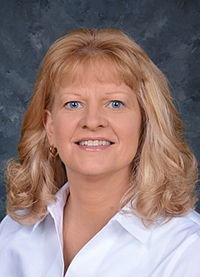
Linda Lafferty, RN, BSN, CSN, MSEd
Certified school nurse, Spring Cove School District
What encouraged you to want to become a school nurse?
I worked in the hospital in Pediatrics, Medical-Surgical floor, and OB for a total of 10 years. I did a rotation with a school nurse when I was working on my BSN in Maryland, and I really enjoyed school nursing. After taking my school nursing certification course, I knew in my heart that this is where I was meant to be working. I really enjoy working with the students, staff, parents, and community members, and providing health and wellness education. I also feel the school setting and schedule best suits my needs and my family’s needs. School nursing is the hardest job you’ll ever love!
What do you plan to do with your award?
I plan to donate it back to the Spring Cove School District.
What is the most common misperception about being a school nurse?
I think most people picture the school nurse sitting at her desk reading a magazine and waiting for students to come into the school nurse’s office for Band-Aids and Tylenol. Spend one day with me, and this misconception will quickly be proven wrong! Students attend school with serious medical issues such as Diabetes, seizure disorders, feeding tubes, Asthma, severe allergies requiring Epi-Pens, shunts, bleeding disorders, cardiovascular disorders, Autism, mental health disorders, migraines, gastrointestinal disorders, etc.
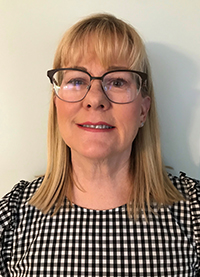
Joyce Petrell, RN, BSN, MPM, CSN
Certified school nurse, Cornell School District
What encouraged you to want to become a school nurse?
I had previously worked in Neonatal Intensive Care and then Nursing Information Technology so I was looking for something new to pursue. I always liked working with children and having a nice schedule was appealing. When I went back for my School Nurse Certification I had two children in school, so the schedule worked well for our family. I also knew I could utilize my extensive nursing background to provide a safe environment for the kids.
What do you plan to do with your award?
The award will go to our wellness initiatives or for professional development.
What is the most common misperception about being a school nurse?
This would definitely be that school age students these days come with a wide variety of medical issues. Whether it be diabetes, asthma and allergies, a certified school nurse must be able to handle all of these medical emergencies. In a typical day 50-60 students come through our office and the nurse must prioritize these situations very quickly. Many students first come through the school nurse’s office as opposed to going to the pediatrician.
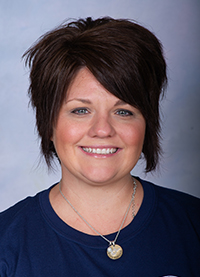
Tammy Riding, BSN, RN, CSN
Certified school nurse, Moundsville Middle School
What encouraged you to want to become a school nurse?
I’ve always wanted to work with kids but my mother is the one who encouraged me to be a school nurse. She was a public school nurse for 35 plus years. Hearing her talk about her work and how she helped kids and knowing the influence that she had on families in our community made me realize my desire to follow in her footsteps.
What do you plan to do with your award?
I plan to donate the monetary award back to the school so that it can be used for students’ needs or supplies in the health office.
What is the most common misperception about being a school nurse?
That school nurses have an easy job and just pass out Band-Aids.
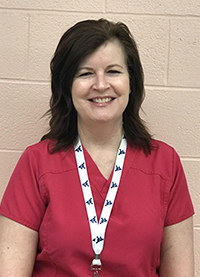
Melissa Tornabene
School nurse, Wood County Schools
What encouraged you to want to become a school nurse?
I was working a weekend nursing job at CAMC, when I began considering going back to work full time. My son was starting the 2nd grade and it felt like the right time. Most of my experience was hospitals or home health. I had never considered becoming a school nurse but felt called when the opportunity presented itself. When I was hired, I was surprised to learn that I was assigned to Franklin Elementary, a school very close to my home, and I have been here 13 years.
I am so grateful for the opportunity to work with the students at Franklin Elementary. I enjoy watching them grow, learn and succeed. I am proud to say that I am a part of their “family” and it is my hope and mission that they feel loved and cared for while they are at school.
What do you plan to do with your award?
I plan to attend the annual conference for the National Association of School Nurses in June.
What is the most common misperception about being a school nurse?
A very common misperception about school nursing, among nurses, is that you will “lose your skills” if you become a school nurse. A school nurse must develop sharp assessment skills, given that most of the time, she is the only medical provider in the building. A school nurse does not have the benefit of consulting with other nurses in the moment. Also, school nurses are typically limited to basic assessment tools such as a blood pressure cuff, stethoscope, etc., — and if she is lucky, an AED. School nurses also have additional credentials and continuing education that is required.
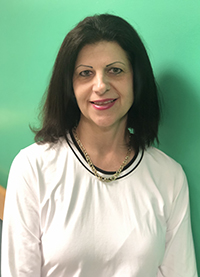
Sandra Veltri RN, BSN, CSN
Lead day school nurse, The Day School at The Children’s Institute of Pittsburgh
What encouraged you to want to become a school nurse?
What I like about being a nurse is the ability and opportunity to explore other avenues of nursing. While raising my own children and working part time, I became a substitute school nurse in the public schools. Although challenging, I felt a connection with these students. From those experiences I felt desire to return back to school to become a school nurse.
What do you plan to do with your award?
I plan on using it in part to further my professional development. Secondly, I would like to donate to the Social Skills program in The Day School at The Children’s Institute. I feel that our population of students, all with special needs, have a challenging life as it is. Our social skills program attempts to bring the “fun” into the school setting by providing exciting activities when possible. Hopefully this donation will help in some way.
What is the most common misperception about being a school nurse?
That school nursing is an easy job. People perceive them as just nurses that pass out medications and attend to first aid issues. They do so much more behind the scenes. They are not only a nurse, but at times they are trainers, communicators, screeners, trouble shooters, and social workers to mention a few.

